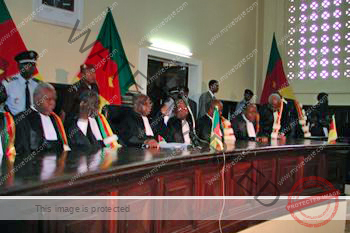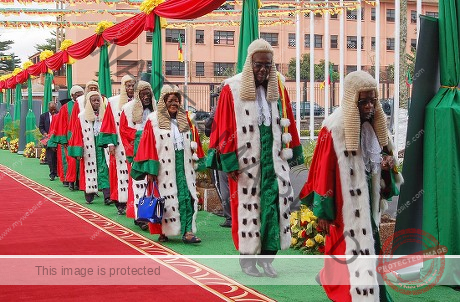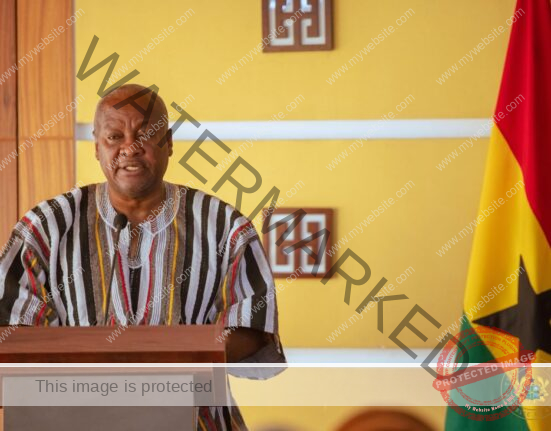By Dr. Martin Mungwa, F.ASCE
Ex-Member, Cameroon Society of Engineers.
Dr. Martin Mungwa an Engineer by training and a fervent reader of the Independentist news writes.
French Cults vs. Anglo-Saxon Learned Societies: A Tale of Two Civilizations.
Introduction: Two Worlds, Two Missions
At the heart of every civilization lies a philosophy of governance. In Anglo-Saxon societies, power is guided by learned societies—bodies of professionals, scholars, and innovators whose central mission is to expand knowledge, promote inclusion, and shape a more just and functional society. In France and its colonial satellites, the opposite holds true: power is sustained through cliques, cults, and covert manipulation, with a deeply rooted fear of educated masses. The result is a system that sabotages its own progress to protect the privileged few.
The story of Cameroon—particularly the experience of Southern Cameroons (Ambazonia)—is a stark case study in how French authoritarian blueprints annihilate excellence, suppress innovation, and punish professionalism.
Learned Societies: Foundations of Anglo Progress
Across Britain, the United States, and other Anglo-Saxon democracies, institutions like the Royal Society, the American Society of Civil Engineers (ASCE), the American Society of Chemical Engineers, the institution of chemical engineers, Royal Society of Chemistry, American Physical Society, American Institute of Physics and the Royal Institute of British Architects are not only respected but central to national development. These bodies drive standards, publish journals, foster public policy, uphold ethics, and serve as talent incubators and conduits across infrastructure, technology, medicine, and law.
Their existence is predicated on meritocracy and transparency. Engineers, doctors, and economists form associations not to conspire against the state—but to advance it. Prime Ministers and Presidents routinely inaugurate these annual meetings, understanding that knowledge-based governance is the most sustainable path to progress.
Cameroon’s Engineer Suppression: A French-Orchestrated Betrayal
But in French Cameroon and the annexed Southern Cameroons, such ideas are subversive. The Cameroon Society of Engineers (CSE)—once a flourishing beacon of innovation—was deliberately dismantled. Why? Because it dared to represent indigenous knowledge and technical excellence outside the orbit of Yaoundé and its French patrons.
A turning point came in the 1970s when President Ahmadou Ahidjo visited the Southwest and observed a composite concrete-steel bridge constructed by local engineers using technical support from the now-defunct USAID. Panic rippled through the corridors of French power. Ahidjo was advised, “If these engineers are allowed to organize, your unitary government is finished.”
At that time in West Cameroon, the Prime Minister Ngom Jua proudly presided over the Annual General Meeting of the Cameroon Society of Engineers, hailing their contribution to national development. Renowned consulting firms like Ndumu, Tamajong & Partners designed icons like the University of Buea—ironically never paid a franc for their work. The society published journals on airplane design, coastal protection, and renewable energy—topics that terrified French neocolonial authorities.
From Chartered Engineers to Crippled Institutions
Among the pioneers was the late Engineer Sendze, then of Beatty Balfour, the only Cameroonian at the time to hold the prestigious Chartered Engineer title under British standards. Also to our memory are the legendary contributions of first university trained electrical engineer Ebaichuo Agbotoko Mbiwan who almost single-handedly erected Powercam and had plans to electrify the entire country with hydro energy. These men and women formed the backbone of a thriving, merit-based society—one the French feared and dismantled brick by brick.
In their place came bureaucrats and puppets. Institutions crumbled. Learned societies were replaced by clientelist networks. Yaoundé replaced excellence with obedience.
The Cemetery of Anglo-Saxon Institutions
The destruction was not limited to engineering. Every cornerstone of Ambazonian economic independence was targeted:
CDC (Cameroon Development Corporation): Once a world-class agro-industrial powerhouse, now a skeleton of unpaid workers and seized lands.
Cameroon Bank: Bankrupted by deliberate bad policy, despite being the economic lifeline of the Southern Cameroons.
Santa Coffee Estate, Tole Tea, WADA, Yoke, UNVDA, and PowerCam—all looted and stripped to their bones.
Credit Unions, once models of cooperative finance, now under surveillance or co-opted.
Efficient mail collection and distribution, once under Kilo Brothers, and construction powerhouses like Nangah Company, have vanished into oblivion.
Even infrastructure excellence was possible: the Prime Minister’s Lodge in Buea was built by Nangah Company for only 50 million francs, on time and under budget. The Foncha government borrowed £25,000 to construct Bamenda Market—paid back every dime.
And yet, under the spell of Communal Liberalism—France’s colonial Trojan horse—none of these institutions were allowed to live.
Dr. Sako and the Return of the Learned State
Today, the resistance has a name: Dr. Samuel Ikome Sako, President of the Federal Republic of Ambazonia. A man shaped by history, tested by betrayal, and chosen by providence. His leadership marks the return of meritocracy, science, and policy-driven governance.
Sako’s government is not built on personality cults or foreign patronage—it is founded on the spirit of the engineers, farmers, economists, and thinkers of the pre-annexation era. The mantle is back in Ambazonian hands. And this time, the DNA has replicated. Over 65 years of repression have only refined the resolve of a generation that refuses to remain colonized.
Conclusion: France’s Days Are Over
As Ambazonians reflect on their past, one thing is crystal clear: Yaoundé will never be our destination. France’s schemes—polished with the gloss of bureaucracy and the stench of betrayal—have seen their final days. The people are awake. The future is technical, democratic, and ours to win.
The learned society is back, and this time, it’s indestructible. We will fight to the last man.
Dr. Martin Mungwa,





















Leave feedback about this